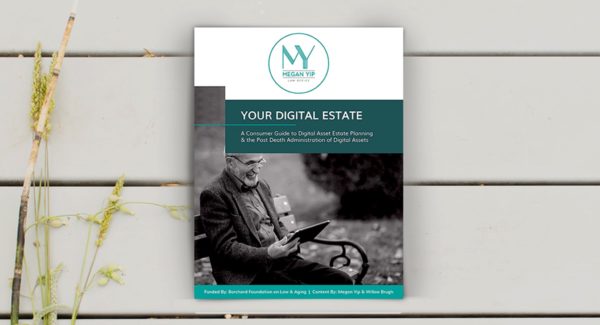Transferring Digital Assets: A Small Estate Affidavit?

One of the more clever suggestions I hear related to transferring digital assets post death is the use of a small estate affidavit. I do think there is potential limited use for a small estate affidavit related to digital assets.
I believe that FinTech companies holding funds should adopt the practice, if they have not already done so (I assume most have), for accounts that fall under the small estate affidavit’s purview. In California, Small Estate Affidavits are used for estate’s with assets totaling less than $150,000.00 They are governed by California Probate Code §13100 et seq.
However, like many parts of our legal discussion about digital asset transfers related to #DigitalDeath, the Electronic Communications and Privacy Act (ECPA) presents the liability concern.
California Probate Code §13102 related to evidence of ownership, subsection (b) provides that a holder (of the decedent’s property) may require, as a condition of the transfer of property, a bond in an amount reasonable, determined by the holder, to indemnify the holder against all liability, claims, demands, loss, damages, costs, and expenses that the holder may incur by reason of the transfer of the property.
Alternatively, and what most financial institutions require today, is that the person claiming the property of the decedent enter into an indemnification agreement with the institution/holder concerning the duty of the person presenting the affidavit to indemnify the holder.
For financial accounts, I draft and suggest the use of these small estate affidavits regularly, many with indemnification clauses. Indemnifying a financial institution for an amount of money that you are going to receive is a calculable risk. As an estate attorney, I have the expertise and experience to help my clients sort out if anyone else might have a legal claim to the money they are claiming.
Indemnifying an internet company for the risk of sharing private communications protected by federal privacy law is a much more difficult risk to understand and calculate.
The average estate administration attorney does not have the legal experience to advise on this risk, and only the deceased person understands the legal causes of action that might come to light if the contents of their email account is shared.
Recent Articles
California Advanced Health Care Directive
The questions I’ve been getting most frequently this past week are about Advanced Health Care Directives, so I thought I’d share some basics. Every state has their own law surrounding advanced health care directives or Medical POAs or Living Wills. So you may know...
Your Digital Estate Consumer Guide
I’m excited to share our Free Downloadable Consumer Guide, Your Digital Estate, Frequently Asked Questions: Answered. If you have further questions on the topic, schedule a consultation below.Recent Articles
Thinking about Tech Solutions
I hear from technologists developing software solutions in the digital estate planning space on a regular basis. I commend them as they are all offering their creativity, skills, and resources to a difficult problem with few straight forward solutions. Knowing that...




0 Comments